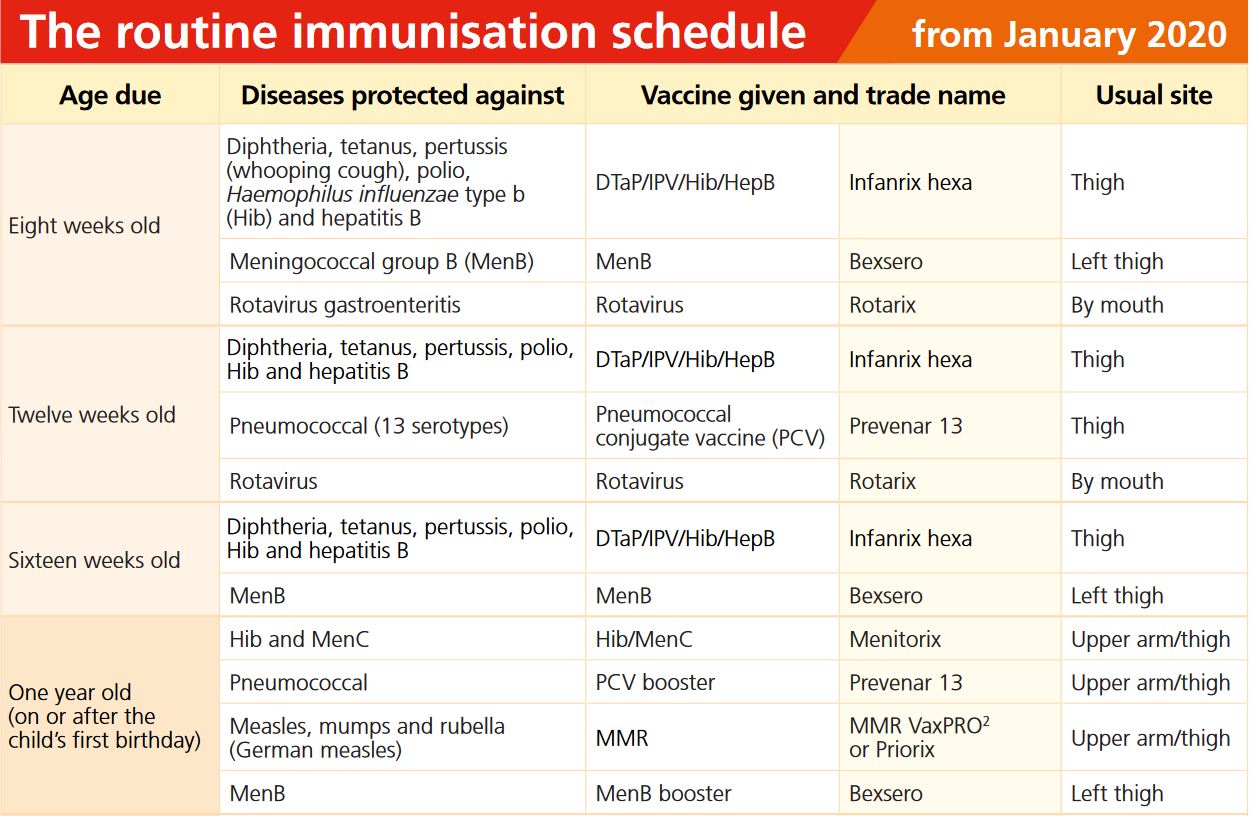Child Immunisation

If a vaccine is given when a baby still has antibodies to the disease, the antibodies can stop the vaccine working. This is why routine childhood immunisations do not start until a baby is two months old, before the antibodies a baby gets from its mother have stopped working. This is also why it is important for parents to stick to the immunisation schedule, as a delay can leave a baby unprotected. A delay can increase the chance of adverse reactions to some vaccines, such as pertussis (whooping cough).
What to expect after vaccinations
8 weeks
12 weeks
6-in-1 vaccine, second dose
Rotavirus vaccine, second dose
16 weeks
6-in-1 vaccine, third dose
MenB vaccine second dose
*About - 6-in-1 vaccine - given as a single jab containing vaccines to protect against six separate diseases: diphtheria; tetanus; whooping cough (pertussis); polio; Haemophilus influenzae type b, known as Hib, a bacterial infection that can cause severe pneumonia or meningitis in young children; and hepatitis B
1 year
Hib/MenC vaccine, given as a single jab containing vaccines against meningitis C (first dose) and Hib (fourth dose)
Measles, mumps and rubella (MMR) vaccine, given as a single jab
Pneumococcal (PCV) vaccine, second dose
MenB vaccine, third dose
Immunisations upto Age One Book
2 to 8 years (including children in reception class and school years 1 to 4)
Children's flu vaccine (annual)
3 years and 4 months
Measles, mumps and rubella (MMR) vaccine, second dose
4-in-1 pre-school booster, given as a single jab containing vaccines against: diphtheria, tetanus, whooping cough (pertussis) and polio
12-13 years (girls only)
HPV vaccine, which protects against cervical cancer – two injections given 6-12 months apart
14 years
3-in-1 teenage booster, given as a single jab containing vaccines against diphtheria, tetanus and polio
MenACWY vaccine, given as a single jab containing vaccines against meningitis A, C, W and Y
Further reading
There are some excellent websites that will answer all your questions and queries about immunisation and vaccination. If you are worried about giving the MMR vaccine, you should access the MMR site.
NHS Website - Immunisation Information
The most comprehensive, up-to-date and accurate source of information on vaccines, disease and immunisation in the UK.
NHS Website - MMR Information
This website has been put together to answer any questions you might have about MMR. You can look for information and resources in the MMR library, ask an expert panel a question, and read up on the latest news stories relating to MMR.

